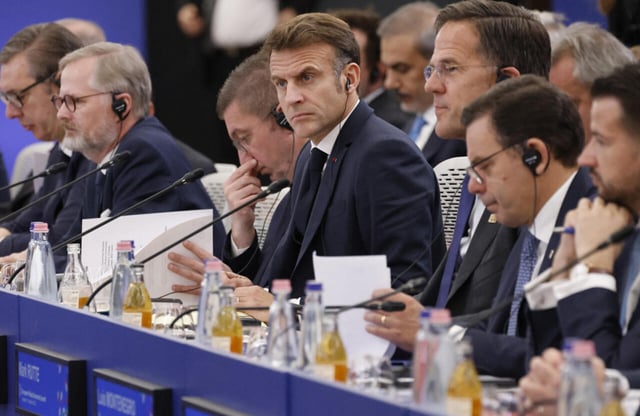The European Council will meet in Brussels on Thursday to discuss the conflicts in Ukraine, the situation in the Middle East, the EU’s role in the world, a range of foreign policy issues including Georgia and Moldova, the sustainability of the union, its civil and military preparedness and migration.
European Council President António Costa said in an invitation letter to the EU summit to EU leaders:
“The December European Council meeting is an important opportunity to send a united and unequivocal message of support to Ukraine for a comprehensive, just and lasting peace. I have invited President Zelensky to come to Brussels on the occasion of the European Council meeting to share with us the latest developments on the ground and his views on how Europe can best support Ukraine.”
A senior EU official told reporters that “we expect a consensus at the negotiating table that the EU should provide all possible support to Ukraine so that it can decide which path to take next, both in terms of the conflict and of dealing with its consequences.”
Brussels recalls that the EU and its members have provided about 124bn euros to support Ukraine. In addition, the head of the European Council intends to insist on assistance to Ukraine “as long as necessary,” emphasising “compliance with the financial commitments” of the EU, in particular, on the allocation of 30 billion euros to Kyiv in 2025, the media source said.
As for military support, the EU leaders will review the situation with the supply of air defence systems, ammunition and missiles, as well as the training and equipment of Ukrainian servicemen. They will also talk about winter aid to Ukraine – the summit participants will discuss how to strengthen the country’s energy sector and other civilian infrastructure.
The EU is ready to increase pressure on Russia and third countries supporting it, including by ensuring the full and effective implementation of sanctions and taking further measures to counter their circumvention, the European Council said in materials distributed by the European Council for the summit.
Under the Middle East section, EU leaders will discuss “the rapidly changing situation in the region, including how the EU can best contribute to de-escalation efforts, the ceasefire agreement between Israel and Lebanon and recent developments in Syria,” the document said. In particular, attention will be paid to continuing to assist the people of the Middle East, especially the most vulnerable, and to scaling up EU humanitarian action in the region.
A “strategic discussion” will take place on how the EU can strengthen its role on the international stage and advance the EU’s position. Costa wrote in his letter:
“We need to recognise the challenges beyond our continent and seize the opportunities of a pluralistic, multipolar, diverse world.”
In light of specific developments, it is expected to address current foreign policy issues, including those concerning Georgia and Moldova.
On the basis of former Finnish President Sauli Niinistö’s report to the European Commission on the Union’s civil and military preparedness, EU leaders will discuss ‘how to strengthen the EU’s resilience, preparedness, crisis prevention and response capabilities’. There will be an exchange of views on the impact of evolving threats and the increasing number of natural disasters due to climate change.
On migration, the European Council plans to assess progress in implementing its past conclusions on the topic. At the October 17 summit, leaders discussed how to strengthen control of the EU’s external borders, cooperate with countries of origin and transit to tackle the root causes of migration, combat smuggling and trafficking in human beings, prevent migrants from dying en route and leaving the EU illegally, and speed up the return of irregular migrants to their home countries.
